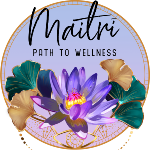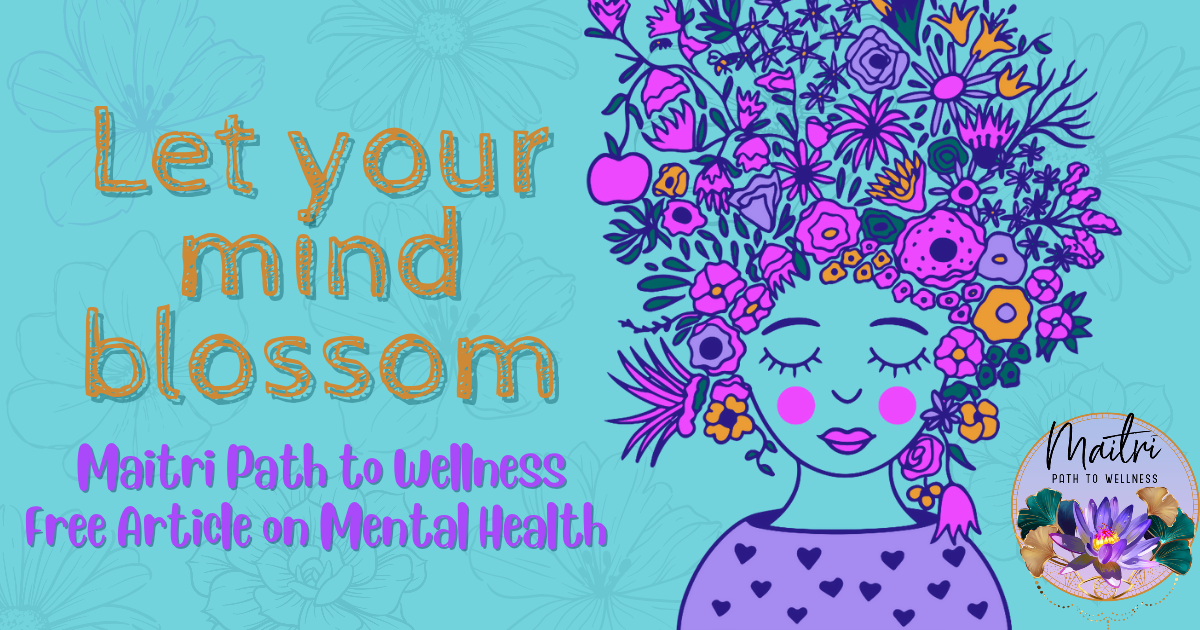Introduction
Living with anxiety can be challenging, affecting various aspects of our lives. However, did you know that nutrition plays a crucial role in managing anxiety symptoms? By making mindful dietary choices, we can alleviate anxiety and improve our overall well-being. In this comprehensive guide, we will explore the powerful connection between anxiety and nutrition, uncovering the foods and nutrients that can help us achieve a calmer mind and a brighter outlook on life.
The Gut-Brain Connection
Anxiety doesn’t solely reside in the brain; it also manifests in our gut. The gut-brain axis, a bidirectional communication pathway between the central nervous system and the digestive system, plays a vital role in our mental health. When imbalances occur in our gut bacteria, it can impact our mood and contribute to anxiety. The good news is that we can nurture our gut health through nutrition, positively influencing our mental well-being.
Gut-Friendly Foods for Anxiety Relief
Certain foods promote a healthy gut and can significantly reduce anxiety symptoms. Incorporating gut-friendly foods into your diet can enhance your overall mental health. Examples of such foods include:
- Fermented Foods: Yogurt, sauerkraut, and kimchi are rich in probiotics, which help restore a healthy balance of gut bacteria.
- Fiber-Rich Foods: Whole grains, legumes, and fruits and vegetables provide dietary fiber that supports good gut health.
- Prebiotic Foods: Onions, garlic, and asparagus contain prebiotic fibers that fuel the growth of beneficial gut bacteria.
- Hydrating Foods: Staying hydrated is essential for gut health. Consume water-rich foods like cucumbers, watermelon, and oranges.
Probiotics and Prebiotics: Nurturing Your Gut for Better Mental Health
Probiotics, found in certain supplements and fermented foods, introduce beneficial bacteria to your gut. They can help alleviate anxiety by reducing inflammation and improving neurotransmitter function. Prebiotics, on the other hand, act as food for the existing gut bacteria, promoting their growth and activity. Incorporating both probiotics and prebiotics into your diet can positively impact your mental well-being.
The Role of Fiber in Reducing Anxiety Symptoms
Fiber not only aids in digestion but also plays a significant role in anxiety reduction. Studies have shown that a high-fiber diet is associated with lower levels of anxiety and stress. By including whole grains, fruits, vegetables, and legumes in your meals, you can enjoy the calming benefits of dietary fiber.
Hydration: A Simple Yet Powerful Strategy for Anxiety Management
Dehydration can exacerbate anxiety symptoms, leading to feelings of restlessness and unease. Ensure you stay adequately hydrated throughout the day by drinking water and consuming hydrating foods. By maintaining proper hydration, you can support your body’s stress response and promote a more balanced mood.
Nutrients for Calming the Mind
In addition to promoting gut health, specific nutrients have been found to have a calming effect on the mind. By incorporating these nutrients into our diet, we can nourish our nervous system and reduce anxiety levels.
Omega-3 Fatty Acids: The Brain’s Best Friend
Omega-3 fatty acids, commonly found in fatty fish like salmon and sardines, have been extensively studied for their mental health benefits. These essential fats play a crucial role in brain function and have been linked to a lower risk of anxiety and depression. If you’re not a fan of fish, you can also obtain omega-3s from sources like chia seeds, flaxseeds, and walnuts.
Magnesium: The Mineral of Calmness
Magnesium is often referred to as the “calming mineral” due to its relaxing properties. It helps regulate neurotransmitters that promote a sense of calm and relaxation. Incorporate magnesium-rich foods into your diet, such as spinach, almonds, avocado, and dark chocolate, to support your mental well-being.
Vitamin B Complex: Nourishing Your Nervous System
B vitamins, including B6, B9 (folate), and B12, are essential for a healthy nervous system. They play a crucial role in the production of neurotransmitters like serotonin, which is often referred to as the “happy hormone.” Foods rich in B vitamins include leafy greens, legumes, whole grains, eggs, and lean meats.
Antioxidants: Fighting Stress and Anxiety Naturally
Antioxidants are powerful compounds that protect our bodies from oxidative stress caused by free radicals. They also play a role in reducing inflammation, which can contribute to anxiety. Including antioxidant-rich foods like berries, dark chocolate, green tea, and colorful fruits and vegetables in your diet can provide natural stress relief.
Foods to Avoid or Limit for Anxiety Relief
While certain foods can alleviate anxiety, others can worsen symptoms. By being mindful of what we consume, we can reduce anxiety triggers and support our mental well-being.
Caffeine and Anxiety: The Anxious Connection
Caffeine, found in coffee, tea, energy drinks, and chocolate, can exacerbate anxiety symptoms in susceptible individuals. It acts as a stimulant, increasing heart rate and triggering feelings of restlessness. If you’re prone to anxiety, consider reducing your caffeine intake or opting for decaffeinated alternatives.
Refined Sugars and Anxiety: Breaking the Sugar-Anxiety Cycle
Refined sugars, often found in sugary snacks, desserts, and processed foods, can lead to blood sugar spikes and crashes, affecting mood stability. While sugar may provide temporary pleasure, it can contribute to anxiety symptoms in the long run. Opt for natural sweeteners like honey or consume whole fruits for a healthier alternative.
Alcohol and Anxiety: A Temporary Escape with Long-Term Consequences
While alcohol may temporarily alleviate anxiety, it can ultimately worsen symptoms. Alcohol is a depressant that affects neurotransmitter balance and can disrupt sleep patterns. Moderation is key, and if you experience anxiety, it’s best to limit or avoid alcohol consumption.
Processed Foods: Unmasking the Hidden Culprits of Anxiety
Processed foods often contain artificial additives, preservatives, and high levels of sodium, which can impact mood and overall well-being. These additives may trigger anxiety symptoms in some individuals. Opt for whole, unprocessed foods whenever possible to nourish your body and support mental health.
Lifestyle Tips for Managing Anxiety
While nutrition plays a significant role in anxiety management, it’s important to consider other lifestyle factors that can complement a healthy diet. By incorporating these habits into your routine, you can further support your mental well-being.
Exercise: The Natural Anxiety Fighter
Regular physical activity has been shown to reduce anxiety and improve mood. Engaging in activities like walking, running, yoga, or dancing releases endorphins, the body’s natural feel-good chemicals. Aim for at least 30 minutes of exercise most days of the week to experience the anxiety-reducing benefits.
The Vital Role of Quality Sleep in Anxiety Reduction
Sleep deprivation can contribute to increased anxiety levels. Prioritize getting adequate and restful sleep by establishing a consistent bedtime routine, creating a relaxing sleep environment, and practicing good sleep hygiene habits. Quality sleep is essential for emotional well-being and can significantly impact anxiety levels.
Stress Management Techniques: Finding Inner Peace Amidst Chaos
Managing stress is crucial in anxiety management. Explore stress reduction techniques like deep breathing exercises, meditation, mindfulness, or engaging in hobbies you enjoy. Find what works best for you and make it a regular part of your self-care routine.
The Power of Mindfulness: Cultivating Present-Moment Awareness
Practicing mindfulness involves being fully present in the moment, without judgment. It can help reduce anxiety by redirecting your focus away from worries and into the present. Incorporate mindfulness techniques into your daily life, such as mindful eating, guided meditation, or simply taking moments to pause and breathe.
Conclusion
Incorporating the right nutrition and lifestyle habits into your daily routine can transform your life and help you effectively manage anxiety. By nurturing your gut, consuming anxiety-reducing nutrients, and being mindful of your food choices, you can support your mental well-being and achieve a calmer, more balanced state of mind.
FAQs
Can nutrition alone cure anxiety?
While nutrition plays a significant role in anxiety management, it’s essential to adopt a holistic approach. Nutrition can alleviate symptoms and support mental well-being, but a comprehensive treatment plan may involve therapy, medication, and lifestyle changes. Consult with a healthcare professional for personalized guidance.
Are there any specific diets recommended for anxiety relief?
There is no one-size-fits-all diet for anxiety relief, but certain dietary approaches may be beneficial. The Mediterranean diet, which emphasizes whole foods, fruits, vegetables, lean proteins, and healthy fats, has been associated with better mental health outcomes. Experiment with different diets and find what works best for your body and mind.
How long does it take to notice improvements in anxiety symptoms through dietary changes?
The timeline for experiencing improvements in anxiety symptoms through dietary changes can vary. Some individuals may notice changes within a few weeks, while others may take longer. Consistency is key. Give your body time to adapt to the new dietary habits, and monitor how you feel over an extended period.
Can supplements help with anxiety management?
Some supplements, such as omega-3 fatty acids, magnesium, and certain herbs like lavender and chamomile, have shown promise in reducing anxiety symptoms. However, it’s important to consult with a healthcare professional before starting any supplements, as they can interact with medications or have potential side effects.
Are there any foods that can provide immediate relief during anxiety episodes?
While specific foods may not provide immediate relief during anxiety episodes, some individuals find comfort in consuming calming herbal teas, such as chamomile or lemon balm. Breathing exercises, grounding techniques, and reaching out for support from loved ones can also help manage acute anxiety episodes.
Should I consult a healthcare professional before making dietary changes for anxiety?
Consulting a healthcare professional, such as a registered dietitian or a mental health specialist, is highly recommended before making significant dietary changes. They can provide personalized guidance, assess your unique needs, and ensure you make informed choices that support your mental well-being.

Hey there friend! I’m Brenden Fasken, a passionate advocate for mental health and the transformative power of recovery. As a proud recovering addict, I’ve traveled the winding roads of addiction and emerged on the other side, ready to share my experiences and insights with you. I enjoy sharing blogs that delve into the complexities of mental health, substance use disorders, and the journey of personal growth. I aim to break down barriers, spark conversations, and offer a beacon of hope to those who may be struggling. So, join me as we embark on this empowering journey together, exploring the depths of our minds, celebrating resilience, and embracing the transformative potential within each of us.
Through my own recovery journey, I’ve learned that life’s challenges can be our greatest teachers. With each hurdle, I’ve gained insights and perspectives that have shaped my understanding of mental health and addiction. From the darkest moments to the brightest triumphs, I share personal anecdotes, reflections, and practical advice that I’ve gathered along the way. Together, we’ll navigate the labyrinth of emotions, challenge societal stigmas, and uncover the power of self-care and self-discovery. So, buckle up and get ready for an engaging and insightful ride as we explore the nuances of mental health and embark on a shared quest for personal growth and well-being.

